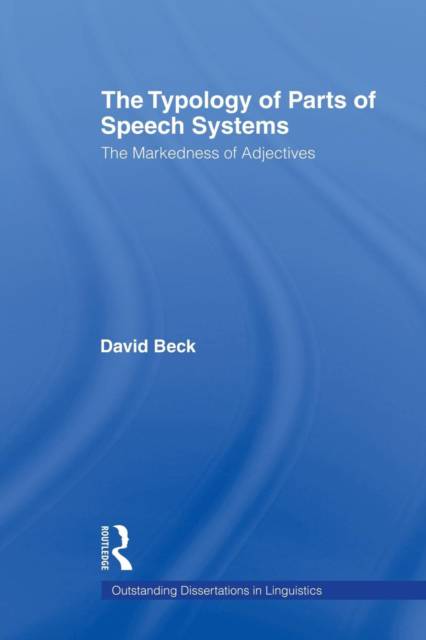
Door een staking bij bpost kan je online bestelling op dit moment iets langer onderweg zijn dan voorzien. Dringend iets nodig? Onze winkels ontvangen jou met open armen!
- Afhalen na 1 uur in een winkel met voorraad
- Gratis thuislevering in België vanaf € 30
- Ruim aanbod met 7 miljoen producten
Door een staking bij bpost kan je online bestelling op dit moment iets langer onderweg zijn dan voorzien. Dringend iets nodig? Onze winkels ontvangen jou met open armen!
- Afhalen na 1 uur in een winkel met voorraad
- Gratis thuislevering in België vanaf € 30
- Ruim aanbod met 7 miljoen producten
Zoeken
€ 72,95
+ 145 punten
Uitvoering
Omschrijving
This book presents rigorous and criterial definitions of the major parts of speech - noun, verb, and adjective - that account both for their syntactic behaviour and for their observed typological variation. Based on an examination of languages from five different groups - Salishan, Cora, Quechua, Totonac, and Hausa - this book argues that parts of speech must be defined by combining the criteria of syntactic markedness, which characterizes lexical classes in terms of unmarked syntactic roles, and semantic prototypicality, which delimits their prototypical meanings. Adjectives are shown to be the marked (and, hence, most variable) class because of their inherent non-iconicity at the semantics/syntax interface. The four-member typology of parts of speech systems (languages with three open classes, those that group adjectives with verbs, those that group adjectives with nouns, and those that conflate all three) current in the literature is easily generated by free recombination of these two criterial features. Closer examination of the data, however, casts doubt on the existence of one of the four possible language-types, the noun-adjective conflating inventory, which is accounted here for by replacing free recombination of semantic and syntactic features with an algorithm for the subdivision of the lexicon that gives primacy to semantics over syntax.
Specificaties
Betrokkenen
- Auteur(s):
- Uitgeverij:
Inhoud
- Aantal bladzijden:
- 232
- Taal:
- Engels
- Reeks:
Eigenschappen
- Productcode (EAN):
- 9780415864992
- Verschijningsdatum:
- 3/09/2013
- Uitvoering:
- Paperback
- Formaat:
- Trade paperback (VS)
- Afmetingen:
- 152 mm x 229 mm
- Gewicht:
- 317 g

Alleen bij Standaard Boekhandel
+ 145 punten op je klantenkaart van Standaard Boekhandel
Beoordelingen
We publiceren alleen reviews die voldoen aan de voorwaarden voor reviews. Bekijk onze voorwaarden voor reviews.











